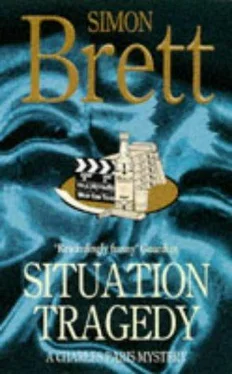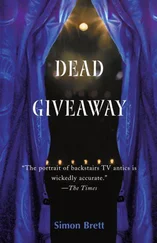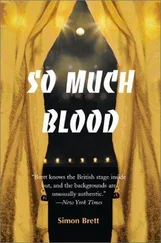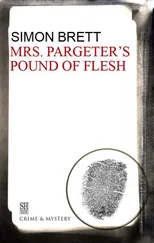Simon Brett - Situation Tragedy
Здесь есть возможность читать онлайн «Simon Brett - Situation Tragedy» весь текст электронной книги совершенно бесплатно (целиком полную версию без сокращений). В некоторых случаях можно слушать аудио, скачать через торрент в формате fb2 и присутствует краткое содержание. Жанр: Классический детектив, на английском языке. Описание произведения, (предисловие) а так же отзывы посетителей доступны на портале библиотеки ЛибКат.
- Название:Situation Tragedy
- Автор:
- Жанр:
- Год:неизвестен
- ISBN:нет данных
- Рейтинг книги:3 / 5. Голосов: 1
-
Избранное:Добавить в избранное
- Отзывы:
-
Ваша оценка:
- 60
- 1
- 2
- 3
- 4
- 5
Situation Tragedy: краткое содержание, описание и аннотация
Предлагаем к чтению аннотацию, описание, краткое содержание или предисловие (зависит от того, что написал сам автор книги «Situation Tragedy»). Если вы не нашли необходимую информацию о книге — напишите в комментариях, мы постараемся отыскать её.
Situation Tragedy — читать онлайн бесплатно полную книгу (весь текст) целиком
Ниже представлен текст книги, разбитый по страницам. Система сохранения места последней прочитанной страницы, позволяет с удобством читать онлайн бесплатно книгу «Situation Tragedy», без необходимости каждый раз заново искать на чём Вы остановились. Поставьте закладку, и сможете в любой момент перейти на страницу, на которой закончили чтение.
Интервал:
Закладка:
‘I shouldn’t think so. Mind you, he’s probably capable of buying her a drink.’
‘Anyway, as I say, I think you’re on to a winner.’
Charles Paris smiled, gratified. ‘Well, I hope you’re right. And thank you very much for coming to see me.’
‘Oh, I didn’t come to see you,’ said Gerald Venables. ‘I only came because I thought you could introduce me to Aurelia Howarth.’
At this moment the object of the solicitor’s adoration appeared at the main entrance to the bar. (Charles noticed with satisfaction that nobody else seemed to know about the short cut up the fire escape.)
In describing Aurelia Howarth, it was impossible to avoid the words ‘well preserved’. Though she was of the generation who thought it impolite to define a lady’s age with too much precision, sheer logic and a knowledge of her theatrical achievements made it impossible for the most gallant admirer to put her birth much later than 1904, which made her at least seventy-five when the pilot of The Strutters was recorded. But, with the help of skilled couturiers and a lifetime’s practice of make-up, she carried her years gracefully. Even as she entered the bar, encumbered by a huge bouquet under one arm and the odious Cocky under the other, her poise did not desert her. Though she had none of the egocentricity of the prima donna, she could never help making an entrance. Now she paused in the doorway, as if anticipating the applause of recognition. It was not a calculated gesture, just something that was instinctive to her.
She still had the slightness so familiar from early publicity photographs, and still enhanced it by wearing dresses skilfully draped about with diaphanous hangings. These, together with an aureole of pale golden hair (surely not natural, but so subtly coloured as to deny artifice), gave her a blurred outline, as if she was always viewed through soft focus. The skin of her face still had a softness, probably the result of a lifelong application of skin creams, and, though it sagged a little round her eyes and neck, remained commendably taut, but without that synthetic shininess which is the legacy of facelifts.
The eyes retained the pure blue clarity which had been remarked by Sacha Guitry, Jack Buchanan and Noel Coward, and the unfocused, abstracted stare which the pre-war public had found so sexy. They reinforced the aura of charming vagueness, which her manner of speech did nothing to dispel.
She did not have to wait long in the doorway for her appearance to register. Peter Lipscombe gambolled across from the bar, asked, ‘Everything okay, Aurelia?’ and took her order for a drink. At a slower pace, a very elderly man inched towards her and greeted her effusively.
He was eccentrically dressed in a blue blazer with an elaborate heraldic badge, and what appeared to have been white cricket flannels. His black shoes had the highly polished gloss of a previous generation. An open white flannel shirt revealed a blue, yellow and green cravat, fixed with a pearl-headed pin. The looseness of the cravat accentuated the thinness of a tortoise neck, on which an almost hairless head bobbled uneasily. Face and hands showed the stark contours of the bone beneath, their flesh eroded by the steady wash of age.
‘Good Lord, it can’t be,’ murmured Gerald.
‘Can’t be what?’ asked Charles.
‘I think it is, though.’
‘Who?’
‘It must be.’
‘Will you stop being bloody oracular and tell me who it is?’
‘Barton Rivers.’
‘That’s a vaguely familiar name.’
‘Aurelia’s husband. I thought he must be dead by now. He’s nearly ninety, must be. I met him at some charity dinner ten years ago and he seemed so doddery and gaga, I thought he couldn’t last long then.’
‘They’ve been married for ever, haven’t they?’
‘Pretty well. It’s always hailed as one of the great show-biz marriages, giving the lie to all those generalisations about show-biz marriages. No, they must have been married in the early Twenties, because I seem to remember they had a son who was old enough to get killed in the war.’
‘Barton was an actor, wasn’t he?’
‘Oh yes, you’ll see his face in bit-parts in pre-war British films. Did the revue circuit too. Even wrote a bit, I think. Never as successful as she was, and didn’t seem to do anything after the war.’
‘Ah.’
‘Anyway, come on, what are you hanging about for? Introduce me.’
‘Gerald, I can’t.’
‘Yes, you can.’
When he approached her, he received the full benefit of the misty blue eyes and a throaty, ‘Charles, darling.’
‘Lovely performance tonight, Aurelia.’ It wasn’t his usual style, but somehow the old actress’s charm seemed to demand it.
‘Do call me “Dob”, darling,’ she cooed. She had always been known as ‘Dob’ in the business, but Charles wouldn’t have dared to use it without her express permission.
Even with it, he had difficulty in bringing himself to say the name. ‘Thank you. . er. . Dob. I’d like, if I may, to introduce you to a friend of mine, who’s always been one of your greatest fans.’ Charles hated doing things like this. ‘Gerald Venables. . this is. . er. . Dob Howarth.’
Gerald took her hand and kissed it gallantly, which was just the sort of thing he would do. Aurelia seemed charmed by the gesture and favoured the solicitor with the beam of her eyes, which still, in spite of her age, remained surprisingly sexy. ‘I’m enchanted to think that someone as young as you should remember an old lady like me.’
Gerald glowed predictably, like a schoolboy who had won a prize. Charles tried to work out why he didn’t find the exchange as sickening as he did most show-biz sycophancy, and decided it was because Aurelia Howarth was a genuinely warm person.
‘But, darlings,’ she continued, ‘I haven’t introduced you to my dear old boy, have I? This is Barton Rivers, my adorable husband. . and this is Charles Paris, whom you saw in the show as our barman. . and Gerald Venables.’
Charles was impressed by the way she had got the names exactly right. He also felt, through the theatrical hyperbole, a very strong attachment between the old couple.
Barton Rivers grinned hugely, turning his insecure head into even more of a memento mori. ‘Lovely to meet you, boys. Weather not much good for the Test Match, is it?’
This remark seemed so inapposite at the end of January, that Charles concluded the old boy must now be completely gaga. But then came a wheezing guffaw, which suggested that perhaps the comment had been a joke. Charles chuckled reassuringly.
Gerald was all politeness. Charles often felt in his friend’s company that awful childish gaucheness of being with the boy whose manners one’s mother has always held up as exemplary.
‘I believe, sir,’ the solicitor charmed, ‘that we met at a Variety Artistes Benevolent Fund dinner about ten years ago.’
Barton Rivers chuckled again. ‘Oh yes, must have been a Tuesday. Sun never comes out on Tuesdays.’
This time, surely, there was no doubt that the old boy’s mind had gone. But Gerald was not so ill-mannered as to notice any inconsistency. ‘Yes, I believe it was,’ he went on smoothly. ‘I must say, it’s a great honour to meet you too, sir.’
‘Honour? “What is honour? A word. What is that word, honour? Air”,’ the old man quoted with sudden lucidity. Charles recognised the line of Falstaff and couldn’t help thinking that soon its speaker would die, like its originator, babbling of green fields. But Barton was already off on another tangent. ‘Trouble is, though, the Aussies don’t know the meaning of the word. All this damned bodyline bowling. You reckon there’s a bump on the pitch, do you?’
Читать дальшеИнтервал:
Закладка:
Похожие книги на «Situation Tragedy»
Представляем Вашему вниманию похожие книги на «Situation Tragedy» списком для выбора. Мы отобрали схожую по названию и смыслу литературу в надежде предоставить читателям больше вариантов отыскать новые, интересные, ещё непрочитанные произведения.
Обсуждение, отзывы о книге «Situation Tragedy» и просто собственные мнения читателей. Оставьте ваши комментарии, напишите, что Вы думаете о произведении, его смысле или главных героях. Укажите что конкретно понравилось, а что нет, и почему Вы так считаете.












